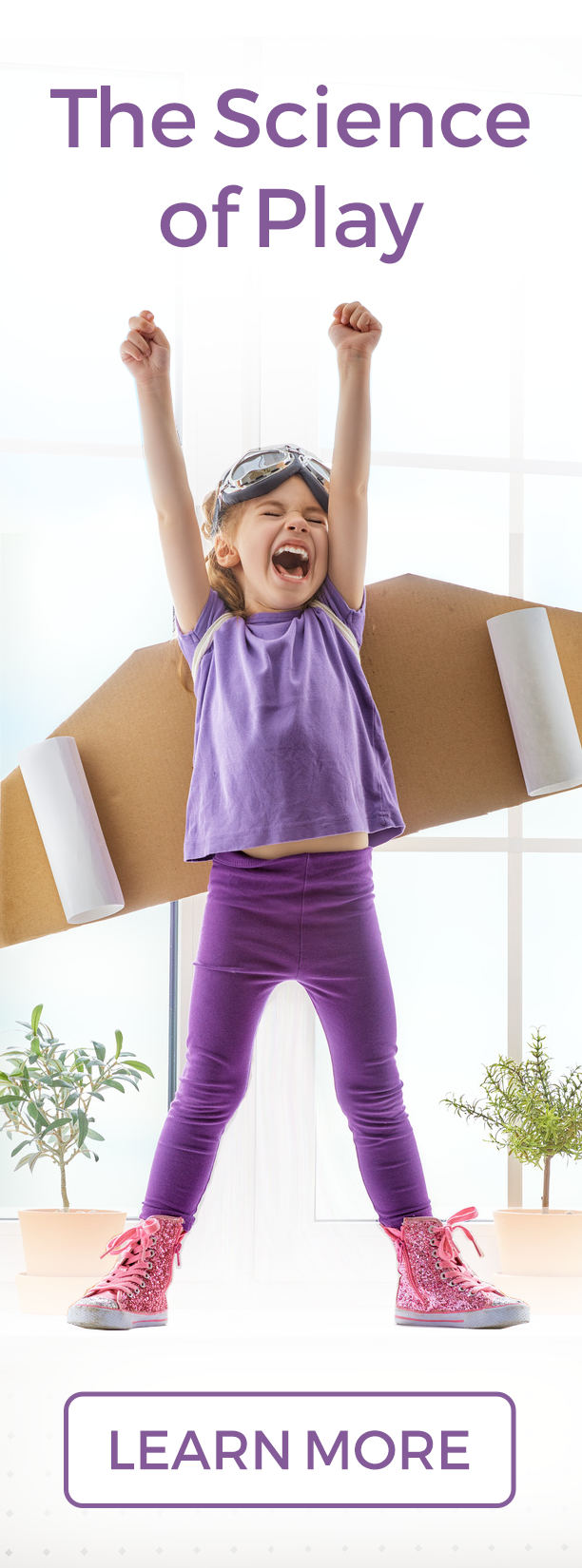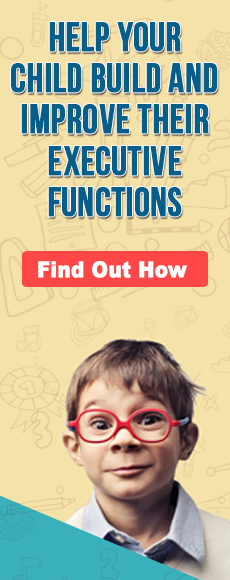Overview
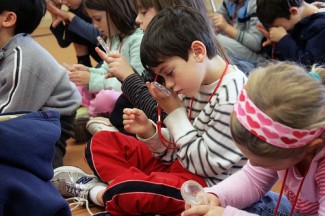 Focus is a Thinking Skill that is composed of three separate, but closely related executive functions: task initiation, sustained attention, and task persistence. Focus involves knowing what to pay attention to in different situations, learning how to get started on tasks, and understanding how to sustain attention and effort to the task at hand. In essence, Focus helps us to get started on something and sustain our attention and effort through its completion.
Focus is a Thinking Skill that is composed of three separate, but closely related executive functions: task initiation, sustained attention, and task persistence. Focus involves knowing what to pay attention to in different situations, learning how to get started on tasks, and understanding how to sustain attention and effort to the task at hand. In essence, Focus helps us to get started on something and sustain our attention and effort through its completion.
Focus is very important for many academic tasks. Students need to be able to use Focus when reading in order to pick out main ideas and fully comprehend the parts of a story. Focus is also important when working in a science lab in order to maintain safety. Students need to focus when taking notes and outlining ideas for a written assingment as well. Focus skills are necessary for success in any classroom.
Click here for more Focus Fundamentals.
Focus Skills in the Classroom
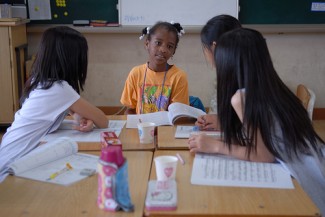 Students need to use Focus skills on a regular basis in order to complete classroom tasks. The following list outlines some common classroom tasks that require the use of Focus skills:
Students need to use Focus skills on a regular basis in order to complete classroom tasks. The following list outlines some common classroom tasks that require the use of Focus skills:
- Actively participating in class discussions: Students need to use focus skills not only to actively listen to others, but to be able to contribute to a discussion with appropriate comments at the appropriate time.
- Accurately following directions: Students need to be able to focus on important information in order to follow directions-especially those with multiple steps, copy down accurate notes, and understand what is expected of them during classroom activities. If a student is focused on unnecessary information (such as a conversation taking place outside of the classroom), he is likely going to miss important information needed to accurately follow along with the class activities.
- Remaining on-task during independent and group work: When working alone or in a small group, students need to be able to keep their attention to the task at hand instead of getting distracted by other things. They also need to remain focused on their own learning so that they can ask questions if they are confused, rather than letting confusion lead to a distraction.
- Effectively managing homework: Focus skills are required when students are recording their homework, determining what they need to bring home to complete it, and sitting down to complete it accurately and efficiently. Students who use focus skills effectively will make sure to contact peers or use other resources available if they have a question about homework, rather than getting distracted from their work.
Teaching Focus Skills with Digital Media
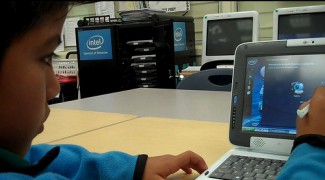 Focus skills help students navigate their way through challenging games and daunting digital technologies. For example, E-Readers require students to use focus skills in order to keep track of main ideas and details as they read, especially when using highlighting and notetaking tools. Other technologies that help students practice different academic skills (like typing or multiplication facts) also help students practice sustaining their attention to the task at hand.
Focus skills help students navigate their way through challenging games and daunting digital technologies. For example, E-Readers require students to use focus skills in order to keep track of main ideas and details as they read, especially when using highlighting and notetaking tools. Other technologies that help students practice different academic skills (like typing or multiplication facts) also help students practice sustaining their attention to the task at hand.
Some students have trouble starting everyday tasks that require listening to and following directions but have instead learned to simply “jump into” playing video games. Video games provide excellent opportunities for kids to identify thinking skills and apply them to their everyday routine. Much like the need for kids to be persistent in their practice of new math or reading skills, games require similar diligence. Many games employ a trial-and-error system, requiring players to fail repeatedly and “stick to it” until they gain a level of mastery over the controls and the game world. Similarly, sustained attention is crucial in order to detect important clues and to keep up with the pace of the action on-screen. More complex games require children to attend to details and keep track of the information that they receive, since it must often be recalled and utilized later in the game. Video games generally require a player to progress through numerous levels in order to reach a goal, with many of the most popular video games taking days or weeks to complete. Learn more about how digital game play can help develop Focus Skills.
Check out our classroom guides for information on how to use specific games and digital technologies to teach Focus skills.
Alternative Learning Concerns & Focus
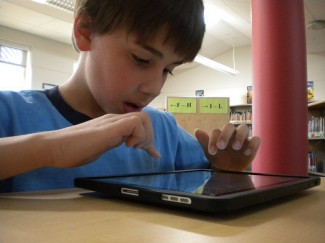 Maintaining Focus in the classroom can be a challenge for many Alternative Learners. Many of these students need to be explicitly taught strategies to use when they feel that they are losing focus on a given task. They also may need guidance on how to use Focus skills in a variety of academic settings, like paying attention to main ideas while reading, or knowing what the most important information is to study for a science test. Our Classroom Guides provide teachers with ideas on how to integrate digital media into instruction in a meaningful and fun way that can help Alternative Learners work on their Focus skills.
Maintaining Focus in the classroom can be a challenge for many Alternative Learners. Many of these students need to be explicitly taught strategies to use when they feel that they are losing focus on a given task. They also may need guidance on how to use Focus skills in a variety of academic settings, like paying attention to main ideas while reading, or knowing what the most important information is to study for a science test. Our Classroom Guides provide teachers with ideas on how to integrate digital media into instruction in a meaningful and fun way that can help Alternative Learners work on their Focus skills.
ADHD & Focus
Perhaps one of the main challenges faced by students who are diagnosed with Attention Deficit Hyperactivity Disorder (ADHD) or with other attentional difficulties is how to use Focus skills to successfully complete classroom tasks. These students sometimes have difficulty using strategies to maintain focus on activities that they find boring or difficult. They may have trouble staying on task when working in groups and let conversations with peers stray from the topic at hand. Students with ADHD may also show a drop in the level of effort or production on work when they are feeling distracted or disengaged from a classroom task.
Incorporating video games and other digital media in the classroom can be a great way for teachers of students with ADHD because they are highly stimulating. Many of these students enjoy the fast-paced nature of games and other technologies, and find it less difficult to sustain their attention to these kinds of activities. Our Classroom Guides provide a variety of suggestions for how to integrate digital media into your teaching of different subject areas as well as ways to help students build Focus skills in the classroom.
Anxiety/Depression & Focus
Maintaining Focus in the classroom can also be difficult for some students diagnosed with anxiety and/or depression. These students can sometimes become distracted by their thoughts during classroom tasks and miss important information. Students with anxiety and/or depression may also find it hard to focus on a task that they find challenging, as they can often easily become discouraged. They may also have trouble sustaining attention and effort to tasks that take them a long time, or if they feel they won’t succeed.
Incorporating digital media into instruction can be helpful for students with anxiety and/or depression. The engaging nature of video games and other technologies is often motivating for students with these issues. Many video games are broken down into small chunks or tasks, which can help students with anxiety and/or depression to think about one task at a time, rather than becoming overwhelmed.
LD & Focus
Students with Learning Disabilities can also struggle to employ Focus skills in the classroom. All students learn in different ways, and the difficulties faced by students with Learning Disabilities will vary based on the students’ individual learning profiles. Some students may have trouble listening when the teacher is reading aloud. Others may struggle to pay attention when classmates are sharing ideas. Others might have a difficult time sustaining effort and attention when working on a writing assignment or working through a difficult math problem.
Incorporating digital media in the classroom provides many opportunities for differentiation in order to meet the needs of all students, and to help build Focus skills. Our Classroom Guides are great tools to use for teachers of students with Learning Disabilities because they are adaptable, meaning teachers can decide how best to use them based on the individual needs of the students.
Educators Guide to the Executive-Functioning Skill of Focus
Focus is a Thinking Skill that is composed of three separate but closely related executive functions: task initiation, sustained attention, and task persistence. Focus involves knowing what to pay attention to and how to get started on attending, sustaining attention to the task at hand, and maintaining your effort at completing the task at hand. In essence, Focus helps us to get started on something and sustain our attention and effort to it.
The three component executive functions of Focus are defined as:
Task Initiation: Getting started involves the ability to initiate a task without procrastination. This skill is demonstrated when one starts directly on a task such as doing homework or completing chores. Getting started requires an understanding of what is expected, the wherewithal to ask appropriate questions for clarity, and the skill to redirect one’s attention from a previous involvement.
Sustained Attention: Sustained attention involves the ability to maintain one’s focus and attention in the presence of distractions and other activities. It requires the ability to return to an activity when interrupted and persist in attending to a tedious or boring task. It may also involve the process of attending to multiple sources of information and being selective in choosing what is most important for your attention.
Sustained attention is developmental, as older children may need to display lengthier periods of time to focus on completing a task. Focus is involved when a child needs to remain seated at school or throughout an entire lunch or dinner. Displays of sustained attention are increased for all children when a task is particularly interesting and varied.
Goal-Directed Persistence: Stick-to-itiveness involves the ability to set a reachable goal and display ongoing effort and attention towards completion of that goal. Persistence is needed when a task becomes boring, when it is interrupted, and when one needs to change strategies and requires
sequencing, willfulness, and the ability to learn from experience. Persistence is particularly important for task demands that are long term.
Stick-to-itiveness is very helpful when children are engaged in an activity that may require sustained practice in order to improve. It is useful in the development of a skill such as playing an instrument or learning individual and team-based skills for a sport. It involves a willingness to delay gratification and to be able to visualize or imagine the future.
How can I tell if a student is having trouble with Focus?
These descriptions might help you identify a student struggling with Focus in the classroom. In general, look for difficulty in sustaining effort to moderate academic demands and students who are always moving, fidgeting, or talking. Focus problems may be exacerbated by challenging academic demands but are likely to be present across situations. Students who can attend and get their work done with one-on-one help but not independently may also find it hard to focus. As with all of the Thinking Skills in the Playing Smarter curriculum, struggles with Focus are likely to co-occur in most students with other areas of weakness in thinking skills.
All Students:
- Finding other things to do such as sharpen pencils, getting up from desk, or looking for something before starting work
- Often appearing to be sluggish, slow moving, and difficult to motivate in the classroom
- Being easily distracted by other students, activities, and interruptions
- Having difficulty following large classroom or group instructions
- Tapping/drumming on the desk/table
- Appearing to forget what has just been described or not listening when peers are speaking to the child
- Often turning in incomplete homework or reporting that an assignment is complete even when it is not
Particularly Important for Elementary Students:
- Frequently fidgeting during circle time or while teacher is reading to the class
- Constantly asking to leave the classroom to use the bathroom or get a drink throughout the day
- Often handling or toying with items in the desk or cubby
- Appearing to daydream on a regular basis or standing up at desk while doing work
- Not starting classwork without being prompted and needing frequent re-prompting to continue working to complete classwork
Particularly Important for Middle School Students:
- Struggling with the skills required to make successful transitions between classrooms
- Having trouble ignoring social demands such as texting or opposite gender classmates in order to concentrate in class
- Asking questions or telling stories that have little or nothing to do with what is going on in class in order to delay working on an assignment
- Having good ideas but being unable to carry them out in written assignments
- Producing writing that tends to get sloppier over the course of a long project
When do students use Focus skills at school?
These are common school-based situations where the thinking skill of Focus is needed. The best way for students to learn the skill of Focus is to practice it while engaged in daily activities. Take the time to recognize these common situations and when you can encourage your students to employ and improve their Focus skills.
- When in conversations and class discussions with others
- When working on tasks that they may find boring or dull such as seatwork
- When at a school lunch period or a short ceremony such as a graduation or class assembly
- When transitioning between classes or subjects
- When listening to an entire story or reading
- When completing a lengthy in-class or homework assignment
- When staying on task while working in groups
- When listening to and following directions given by the teacher
- When keeping track of and writing down homework assignments/projects and contacting peers when necessary for homework help
- When asking questions when confused, rather than letting confusion lead to distraction
How can I help my students practice their Focus skills in the classroom?
- Initially, provide external supports for the students that taper off over time. This could include coaching them through the first few homework problems or prompting them to start a classroom task. Support could also be provided by helping the students to formulate a list of what smaller tasks each larger task entails and then assisting them in identifying which of these tasks should be worked on first. Allow interesting and stimulating tasks to follow more boring and mundane tasks. It may be difficult for the students to sustain their attention to tasks they find to be uninteresting or not to their liking. They may be more inclined to pay attention to and complete such tasks when they can look forward to doing something they enjoy once the task is completed such as being able to have free time or computer time after finishing an in-class task.
- Be clear and concise when giving directions. Do not overload the students with too many words or directions and ask them to paraphrase what they have heard when new directions are provided. This can help them to process and reflect on new or important information. For everyday classroom tasks, less is more. Some students get into the habit of tuning out adults, so minimizing the amount of language may increase their attention to directions. For example, rather than lecture about the need to hang a coat on its hook and put a homework folder in a designated place, one could simply say “coat” and “homework.” For more instruction on how to do this effectively read How to Talk so Kids will Listen and How to Listen so Kids Will Talk by Adele Faber and Elaine Mazlish.
- Systematically determine the best conditions to sustain the students’ attention over time. Many students with attention difficulties do not sustain their attention well in quiet, sterile settings but do best in settings where there are modest levels of noise and activities such as some type of “white noise,” soft music, or someone else engaged in a task such as working on the computer or doing an art project. Consider the conditions that impact the students’ performance such as time of day, their energy level, and the nature of the task. Involve them in thinking about the tools, time frame, and settings that work best for them to complete tasks. The students can be encouraged to become aware of the type of setting that works for them and to create these settings at home and school.
- Set goals that are easy to reach. This reduces the likelihood that the students will get bored and not finish the task. Break large tasks into smaller, easier pieces. For instance, students who have to read a book should be encouraged to read a chapter a night, rather than worrying about having to finish the whole book.
- Look for the students’ strengths. Using the students’ strengths as a teaching aid may help them to overcome any stigma when it comes to completing other goals. For example, with students who constantly give up when learning how to read, find an interest of theirs such as humor or cars and use literature such as magazines on these topics to keep their attention.
What tips can I give my students to help them improve their Focus skills?
- Play games that require scanning and search. Games such as “Find the Difference,” in which two similar but slightly different pictures are provided, can be helpful for sustained attention. Do word searches and other puzzles, then talk to your teacher about the “system” you used to solve these puzzles. A great assortment of these games can be found in PlayThinks by Ivan Moscovich.
- Use alarms or timers to let you know when to stop. You could make a task a game or competition using time, as well. Challenging yourself to do a certain amount of work in a specific amount of time could help you to stick with the task and finish it.
- Participate in activities that require full attention. For example, play catcher, pitcher, or first base in baseball, as these positions require players who are able to sustain their attention more than those in the outfield. Play instruments that are a regular part of the band or orchestra in musical settings, rather than something such as cymbals, which are rarely used.
- Break tasks into small pieces that can be completed in one sitting. For example, work on increasingly more complex jigsaw puzzles that are age-appropriate. A 10-year-old might start with a 100-piece puzzle and, after success with that, move up to a much larger puzzle with 500 or 1,000 pieces. Try to sit for sustained periods to work on the puzzle. It might be useful to do the puzzle with classmates and break up the puzzle into components, so that each of you is working on a different part. Discuss how breaking up a large task such as a puzzle may be similar to working on steps towards completing a long-term project at school or finishing all your homework by doing assignments for one class at a time.
Classroom Guides for Focus
[post_grid id=”95979″]



